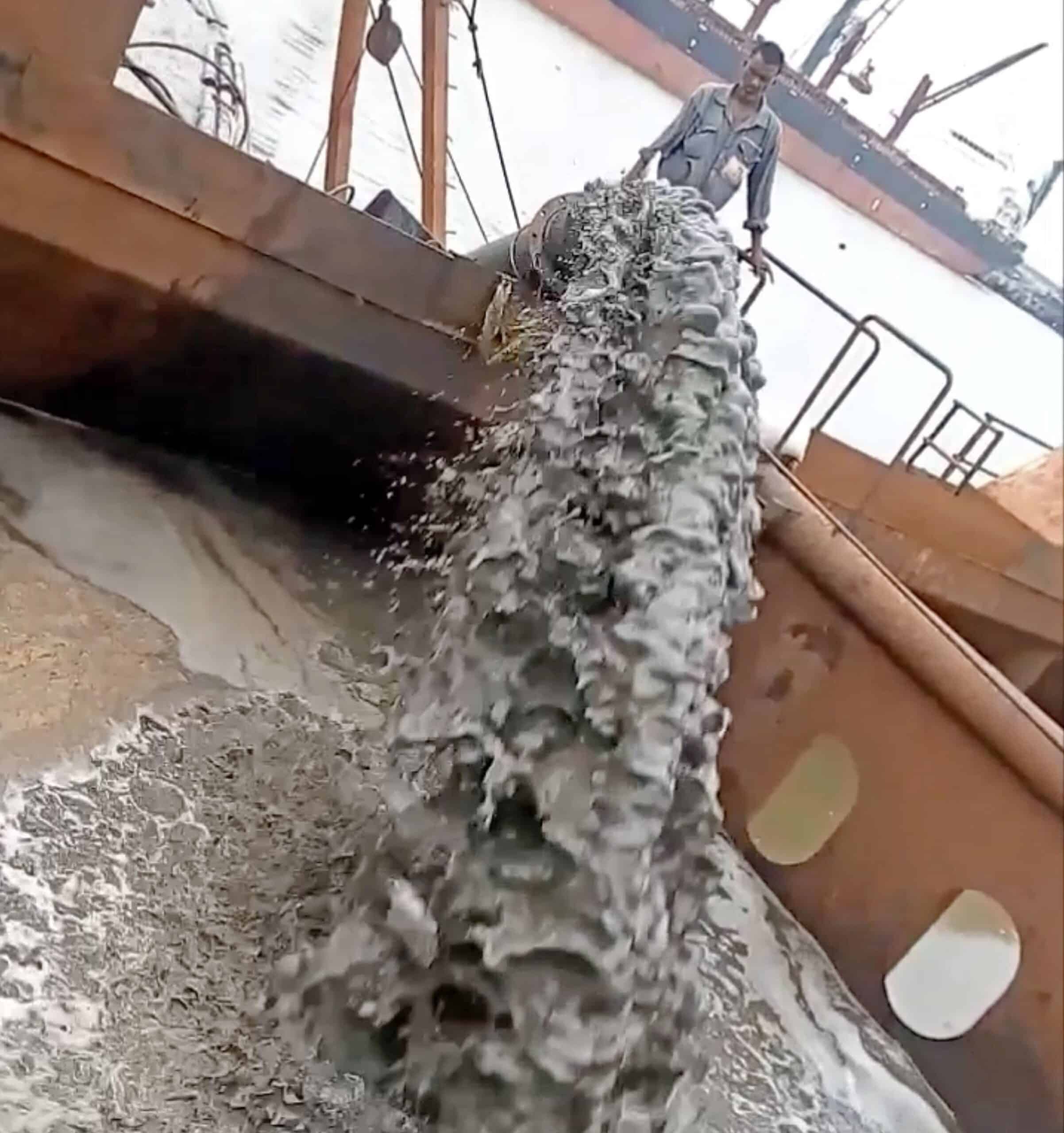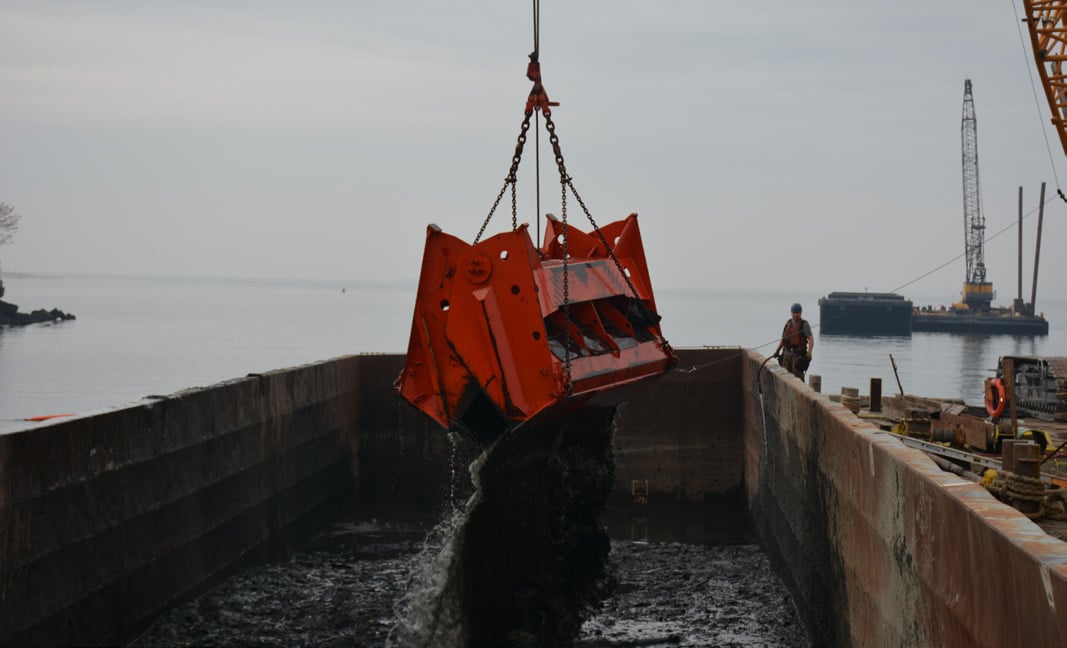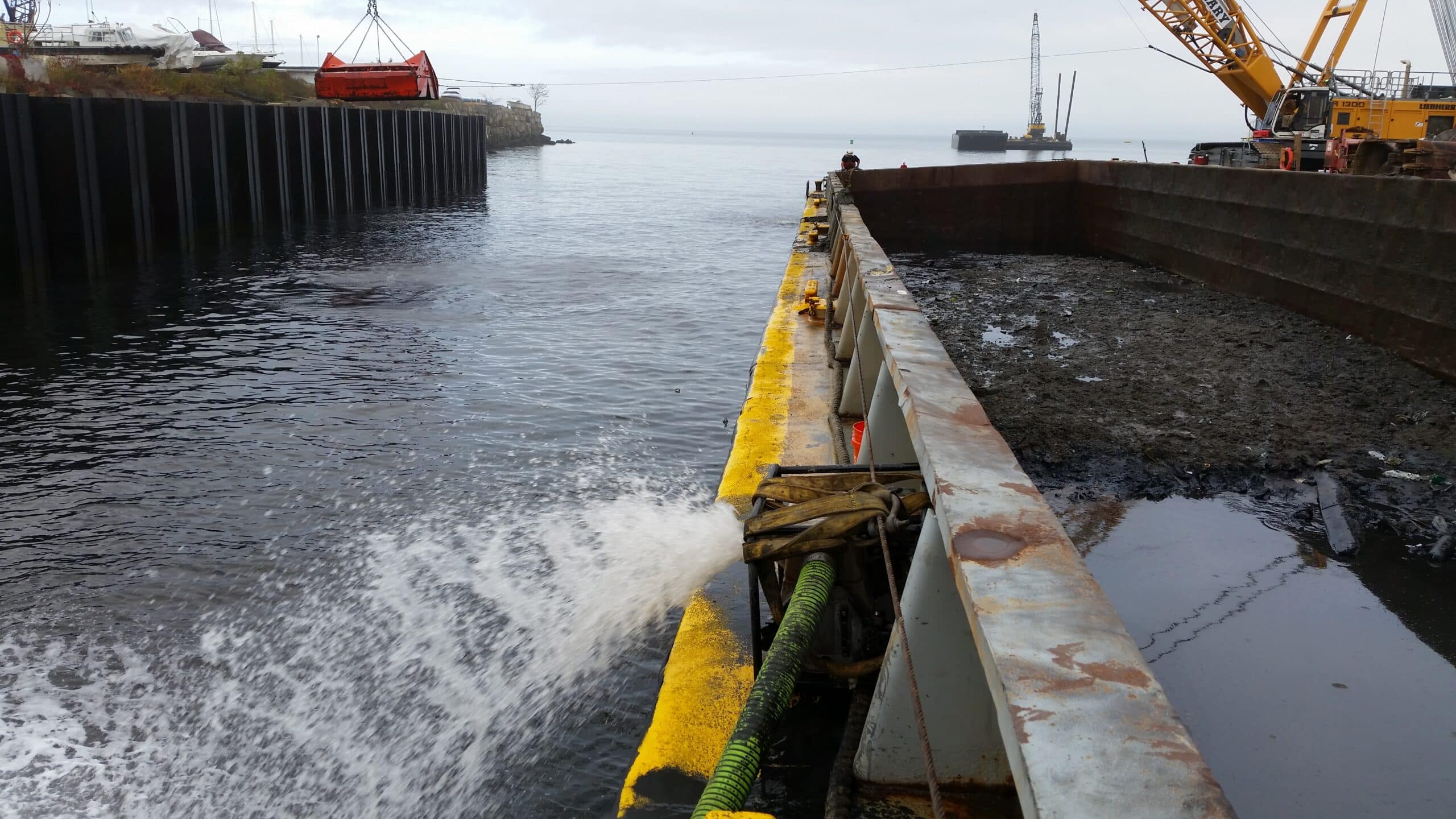One of the key uses of water-soluble polymers in this context is to enhance the settling rate of the dredged materials. As the scow or barge is filled during the dredging operation, conditioning chemistry involving these polymers can be added. These polymers, acting as flocculants, encourage the aggregation of fine particles into larger masses. These larger masses settle by gravity more rapidly. This accelerated settling process facilitates more efficient separation of solids and water, improving overall dredging productivity.
Water-soluble polymers provide indispensable benefits for mechanical dredging operations involving a scow or barge. They help improve the settling rate by adding conditioning chemistry as the scow is filled, reduce standby time for pumping off the water, and potentially minimize tugboat fuel costs by enabling the disposal of more solids and less water. Our polyDADMAC polymers are also used to accelerate clean filtrate release.
Improving Settling Rate with Conditioning Chemistry


Improved Clarity of Overflow
During a case study on the utilization of coagulant polymers during mechanical dredging, effluent quality and settling rates were double that of dredging without SNF polymers. SNF’s applications expertise provided an environmentally-friendly solution while reducing project time and costs. This allowed the dredging company to continue dredging longer during each work day and complete the dredging project on schedule.
Case Study - SW BROOKLYN MARINE TRANSFER STATIONReducing Standby Time for Pumping Off Water
The improved settling rate provided by the water-soluble polymers directly translates into reduced standby time for pumping off water from the scow or barge. With solids settling faster, the separated water can be pumped off more quickly. This leads to a smoother, more continuous operation, saving valuable time, and contributing to overall operational efficiency.


Potential Reduction in Tugboat Fuel Costs
By optimizing the settling process and reducing the water content of the dredged material, water-soluble polymers also have the potential to cut down tugboat fuel costs. Since a more significant proportion of solids to water can be dumped at a time, the weight and volume of the material to be transported by the tugboat are effectively reduced. This translates into lower fuel consumption, thus providing significant cost savings in the long run.
